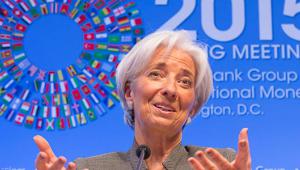A joint report published yesterday by the International Monetary Fund, the OECD, the United Nations and the World Bank, working together as members of the new Platform for Collaboration on Tax (PCT), identifies a number of measures to encourage and reinforce the necessary tax ‘enthusiasm’ from developing countries.
The report was produced in response to a request from G20 finance ministers following their February 2016 meeting. Stewards of the world’s biggest economies asked the PCT to identify how best to ensure technical assistance is effective.
One of the reports key messages is that rather than “passive ownership”, successful tax capacity strengthening relies on “continued energy, enthusiasm and commitment” at the highest levels.
It notes that this can be hard to sustain, with setbacks being likely, and will mean taking on formidable vested interests who oppose the development of the tax system.
The report highlights a number of key factors that encourage such an enabling political environment, as well as a number of measures development partners can take to be more active in producing it.
They include the development of a coherent, medium-term revenue strategy as part of a development financing plan, which would demonstrate value, diagnose risks and problems and involve all stakeholders.
Successful tax capacity building also requires “strong coordination among well-informed and results-orientated providers”, the report continued. This is currently extensive but ad hoc, it said, and there is clear scope for improvement.
Partners should develop a comprehensive support plan, which adheres to principles of aid effectiveness and avoids the fragmentation of delivery and receipt of support, it said. They should also exploit their institution’s wider links to authorities outside of the tax area.
It’s important for both developing countries and development partners to pursue a “whole of government approach”, it continued, but development partners in particular need to coordinate and control the proliferation of global initiatives and processes carefully to avoid the risk of “meeting fatigue”.
Impact indicators need to be refined to strengthen evidence that external support leads to improvements, and a stronger knowledge and evidence base, built on reliable and comparable data, is needed, the report continues.
The “untapped potential” of regional organisations, which play a strong and unique role in strengthening capacity, must be better utilised, it argued. At the same time, developing countries need to have better opportunities for participation in international rule setting.
The OECD said G20 finance ministers and central bank governors “acknowledged” the report at their meeting in Chengdu, China this weekend, and have asked for a further progress update by mid-2017.













